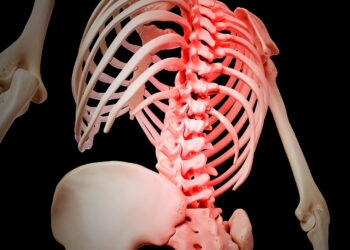TOPLINE:
A higher consumption of cruciferous vegetables such as broccoli and cauliflower was associated with a notably reduced risk for colon cancer (CC), with an optimal intake of 40-60 g/d providing a risk reduction of 20%-26%.
METHODOLOGY:
- Previous meta-analyses have studied the association between the intake of cruciferous vegetables and the risk for CC; however, the quantitative dose-response relationship remained uncharacterized, limiting insights for dietary guidance.
- Researchers performed a systematic review and meta-analysis of 17 studies (seven cohort and 10 case-control studies) to analyze the dose-response association between the consumption of cruciferous vegetables and CC risk.
- Studies were included if they enrolled adults without CC at baseline (cohort studies) or adults with diagnosed cases who were matched with control individuals (case-control studies), quantified the dietary intake of cruciferous vegetables through standardized questionnaires, and included comparator groups with lower or no intake of such vegetables.
- The studies included 639,539 participants, of whom 97,595 had CC. Incident cases of CC were confirmed via medical records, pathology, registries, or validated self-report.
TAKEAWAY:
- A pooled analysis revealed that people who consumed the largest amounts of cruciferous vegetables had a 20% lower risk for CC than those who consumed the lowest amounts.
- A dose-response analysis showed that risk reduction was near maximal at an intake of 40-60 g/d (odds ratio, 0.74-0.8), with benefits plateauing beyond this range.
- The peak protective effect per gram occurred at an intake of 20-40 g/d of cruciferous vegetables and fell after 60 g/d.
IN PRACTICE:
“The pathophysiology of CC has been linked to dietary factors, specifically inadequate intake of vegetables and dietary fiber, as well as excessive alcohol and caffeine use. These empirical findings lend credence to our results, suggesting a potential chemopreventive role of CV [cruciferous vegetables] against CC development,” the authors wrote.
SOURCE:
This study, led by Bo Lai, Department of Interventional Radiology, The Second Clinical Medical School of Inner Mongolia University for the Nationalities, Yakeshi, China, was published online in BMC Gastroenterology.
LIMITATIONS:
The inclusion of both case-control and cohort studies and variations in the assessment of cruciferous vegetable intake across studies may have introduced methodological heterogeneity and measurement error, respectively. This study did not measure factors such as pesticide exposure and genetic susceptibility. The predominance of studies from North America and Asia — regions with an elevated incidence of CC — may have limited generalizability to other populations.
DISCLOSURES:
This study received no financial support. The authors declared having no competing interests.
This article was created using several editorial tools, including AI, as part of the process. Human editors reviewed this content before publication.
Source link : https://www.medscape.com/viewarticle/eating-more-cruciferous-vegetables-may-cut-colon-cancer-risk-2025a1000ls9?src=rss
Author :
Publish date : 2025-08-18 12:42:00
Copyright for syndicated content belongs to the linked Source.








